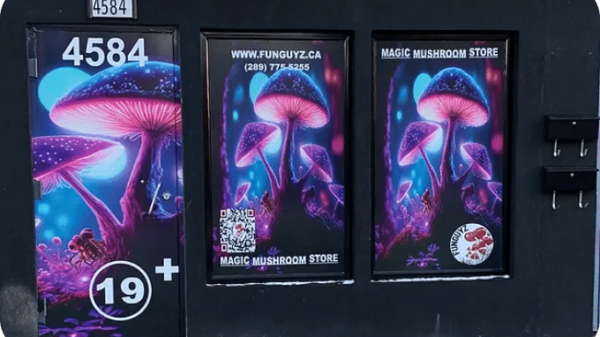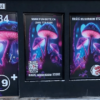Americans living in states with legal recreational cannabis were far less likely to suffer vaping-related lung injuries than those who live in states that prohibit weed use, according to new research.
The study, published in the Journal of the American Medical Association Network Open this week, further supports advocates’ claims that e-cigarette or vaping product use-associated lung injury, or EVALI, is caused by tainted vape cartridges sold in illicit markets.
Although scientists haven’t been able to pinpoint the exact cause of the illnesses, the U.S. Centers for Disease Control and Prevention previously reported that more than three quarters of EVALI patients got THC vape products from unregulated sources. As well, vitamin E acetate — a thickening agent that’s dangerous when heated and consumed — was detected in 78 per cent of those products they were using.
Read more: Illicit THC vapes main cause of EVALI lung illness: CDC
There have been nearly 3,000 EVALI cases in the U.S. as of February, resulting in 60 deaths, according to the CDC.
In the study published this week, the University of Indiana analyzed state-level CDC data, e-cigarette consumption data from the Behavioral Risk Factor Surveillance System, as well as population census data.

State by state data on EVALI cases via JAMA Network Open
The scientists said they wanted to test the hypothesis that illicit-market THC products cause EVALI.
The study results showed that states with recreational weed stores had 1.7 EVALI cases per million people, versus 8.1 cases per million in prohibition states. However, medical-only states experienced an EVALI case rate of 8.8 per million people.
“The data suggest that EVALI cases were concentrated in states where consumers do not have legal access to recreational marijuana dispensaries,” the researchers wrote.
“This association was not driven by state-level differences in e-cigarette use, and EVALI case rates were not associated with state-level prevalence of e-cigarette use. One possible inference from our results is that the presence of legal markets for marijuana has helped mitigate or may be protective against EVALI.”
However, the researchers note the reason for this association remains unclear. While it’s likely the tested THC vape products from legal stores in recreational states are a safer option, they concluded that more research is needed.
Commentary: EVALI rates are lower in states that have legalized recreational marijuana. Is legalizing marijuana protective against EVALI as there is less incentive to dilute THC in states where raw THC material is readily available without legal risk? https://t.co/Bd5Z8wYbjQ
— JAMA Network Open (@JAMANetworkOpen) April 7, 2020
Erik Altieri, executive director at weed reform group NORML, said these findings come as little surprise.
“In jurisdictions where cannabis is legally regulated, consumers gravitate toward the above-ground retail marketplace where they can access lab-tested products manufactured by licensed businesses.” Altieri said in a statement, “Just like alcohol prohibition gave rise to the illicit production of dangerous ‘bathtub gin,’ marijuana prohibition provides bad actors, not licensed businesses, the opportunity to fulfill consumers’ demand — sometimes with tragic results.”
Top image via Deposit Photos
jared@mugglehead.com
@JaredGnam














